Understanding the Complexities of Care
Families with children diagnosed with Down syndrome face unique healthcare challenges and opportunities. This article explores the array of medical guidelines, supportive services, care coordination strategies, insurance options, and systemic challenges that shape healthcare access and quality for these families. Grounded in expert recommendations and current research, we aim to provide clarity and actionable insights to empower families and healthcare providers alike.
Medical Care Guidelines and Essential Screenings for Children with Down Syndrome
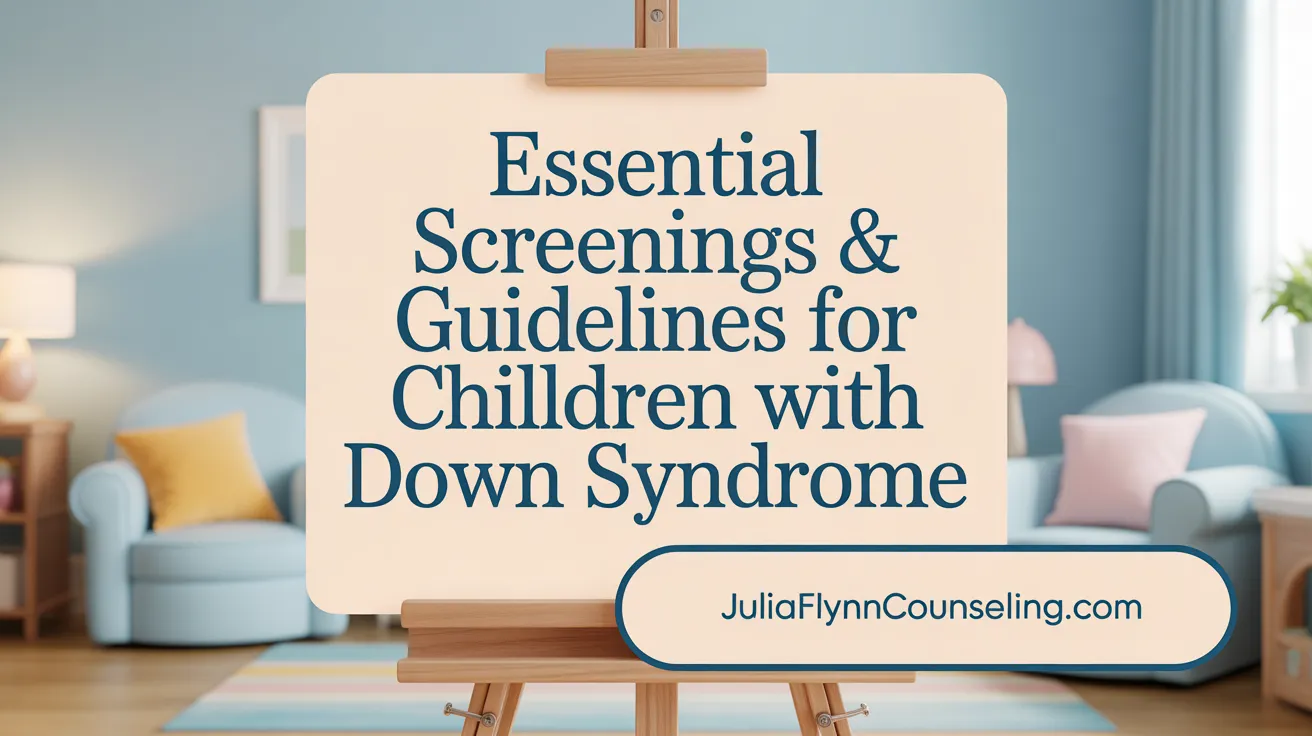
What are the recommended medical care guidelines and screening protocols for children with Down syndrome?
Children with Down syndrome benefit from a structured and continuous healthcare plan that aligns with the latest recommendations from the American Academy of Pediatrics (AAP) and other professional organizations. These guidelines emphasize the importance of early assessment, ongoing monitoring, and proactive management of associated health conditions.
Regular screening tests form the backbone of medical care. For thyroid health, a TSH and T4 blood test should be performed annually since hypothyroidism is common in this population. Hearing evaluations are recommended every two years to identify hearing loss early, which is prevalent in children with Down syndrome. Similarly, comprehensive eye examinations, including assessments for cataracts and other visual impairments, should be conducted regularly, typically every one to two years.
Cardiac health is crucial, as nearly half of children with Down syndrome are born with congenital heart defects. Echocardiograms are essential especially in infancy and as clinically indicated later on. Growth monitoring using WHO growth charts helps detect overgrowth or failure to thrive. Screening for other common conditions such as celiac disease, anemia, sleep apnea, and atlantoaxial instability should be part of routine care.
Neurodevelopmental and behavioral assessments are important for timely intervention. Early therapeutics like physical, speech, and occupational therapies support developmental progress. It is also recommended that children undergo neuropsychological evaluations to tailor educational and behavioral strategies.
How does age factor into medical care for children with Down syndrome?
Care plans and screenings are tailored to each age group, starting from prenatal diagnosis and continuing through childhood and adolescence. Prenatal screening options such as noninvasive cell-free DNA testing provide risk assessment. Confirmatory diagnostic tests like chorionic villus sampling (CVS) or amniocentesis are used to establish diagnosis.
Postnatally, newborns should have a thorough physical exam and chromosomal analysis to confirm Down syndrome. Follow-up includes monitoring for heart defects and initiating early intervention services.
As children grow, regular assessments adapt to developmental milestones. For example, in toddler years, focus on speech and motor development, while in adolescence, attention shifts to managing thyroid function, mental health, and early screening for age-related issues such as early-onset Alzheimer’s disease.
Why is prenatal and postnatal diagnosis important?
Prenatal diagnosis through blood tests and ultrasounds helps families prepare for the needs of a child with Down syndrome and plan early for medical and educational interventions. Confirmatory tests such as CVS or amniocentesis provide definitive diagnosis, allowing healthcare teams to implement appropriate medical management immediately after birth.
Postnatal diagnosis through physical examination and chromosomal testing affirms the condition and guides treatment strategies. Early diagnosis is vital for timely interventions, which can significantly improve health outcomes and quality of life.
What are the key medical assessments and tests for children with Down syndrome?
| Medical Assessment | Frequency | Purpose | Additional Notes |
|---|---|---|---|
| Thyroid function tests | Annually | Detect hypothyroidism | Blood tests like TSH and T4 |
| Hearing evaluations | Every 2 years | Identify hearing loss | Includes audiometry or auditory brainstem response |
| Eye exams | 1-2 years | Detect cataracts, refractive errors | Includes ophthalmologist assessment |
| Echocardiogram | As needed | Detect congenital heart defects | Especially in infancy |
| Growth monitoring | Regular | Monitor size and development | Use WHO charts |
| Celiac disease screening | As indicated | Identify gluten sensitivity | Blood tests for antibodies |
| Sleep study | If showing symptoms | Detect sleep apnea | Especially in cases of obstructive sleep issues |
| Atlantoaxial stability | As recommended | Prevent spinal cord injury | Neck X-ray if symptoms present |
Following these guidelines helps ensure children with Down syndrome receive appropriate, timely, and comprehensive care as they grow. Access to consistent care and early intervention can greatly improve health outcomes and enhance their quality of life.
Common Medical Conditions and Comprehensive Management Strategies
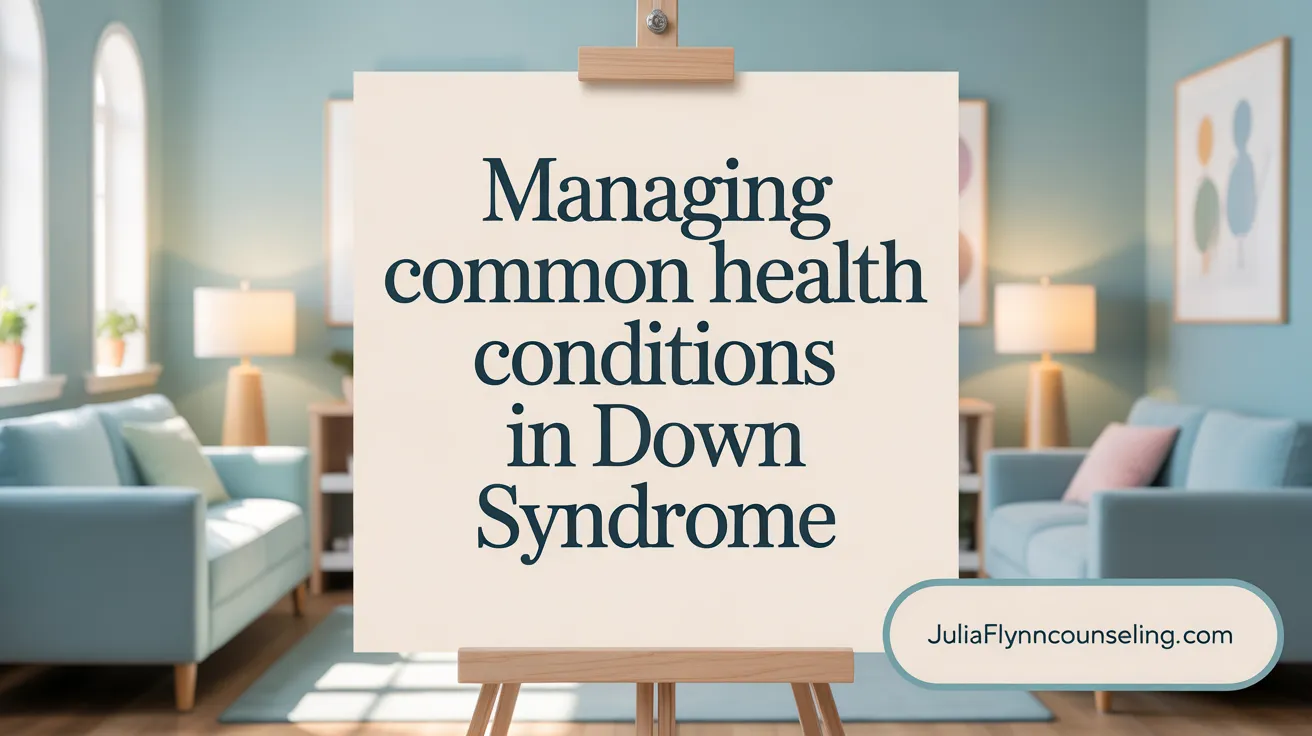
What medical conditions are commonly associated with Down syndrome, and what are their care requirements?
Children and adults with Down syndrome often face a range of health challenges that require ongoing healthcare management. These include congenital heart defects, which are present in about half of all children with the condition. Some of these heart issues may need medication or surgical correction to prevent complications.
Vision problems are also prevalent, with cataracts and refractive errors affecting up to 60% of individuals. Corrective lenses or surgeries can often improve sight. Hearing loss, which occurs in approximately 75% of children with Down syndrome, is frequently caused by structural ear issues or middle ear infections, making regular hearing screenings essential.
Sleep disorders, including obstructive sleep apnea, are common and can affect cognitive and physical health. Sleep studies may be necessary to diagnose and create effective treatment plans. Thyroid problems, especially hypothyroidism, are found in about 24% to 50% of individuals and require routine thyroid function tests followed by hormone therapy if indicated.
Beyond these, individuals with Down syndrome may experience developmental delays, cognitive impairments, increased susceptibility to infections, feeding and digestive problems, and a higher risk of certain cancers like leukemia and autoimmune diseases. This broad spectrum of health issues calls for a coordinated, multidisciplinary approach.
Regular screenings, early interventions, and ongoing medical care are vital for maintaining health and enhancing quality of life. This involves collaboration between pediatricians, specialists such as cardiologists, ophthalmologists, audiologists, endocrinologists, and therapists. Tailored care plans and consistent health monitoring help address these conditions effectively and support individuals in reaching their full potential.
Support Networks and Educational Resources Empowering Families
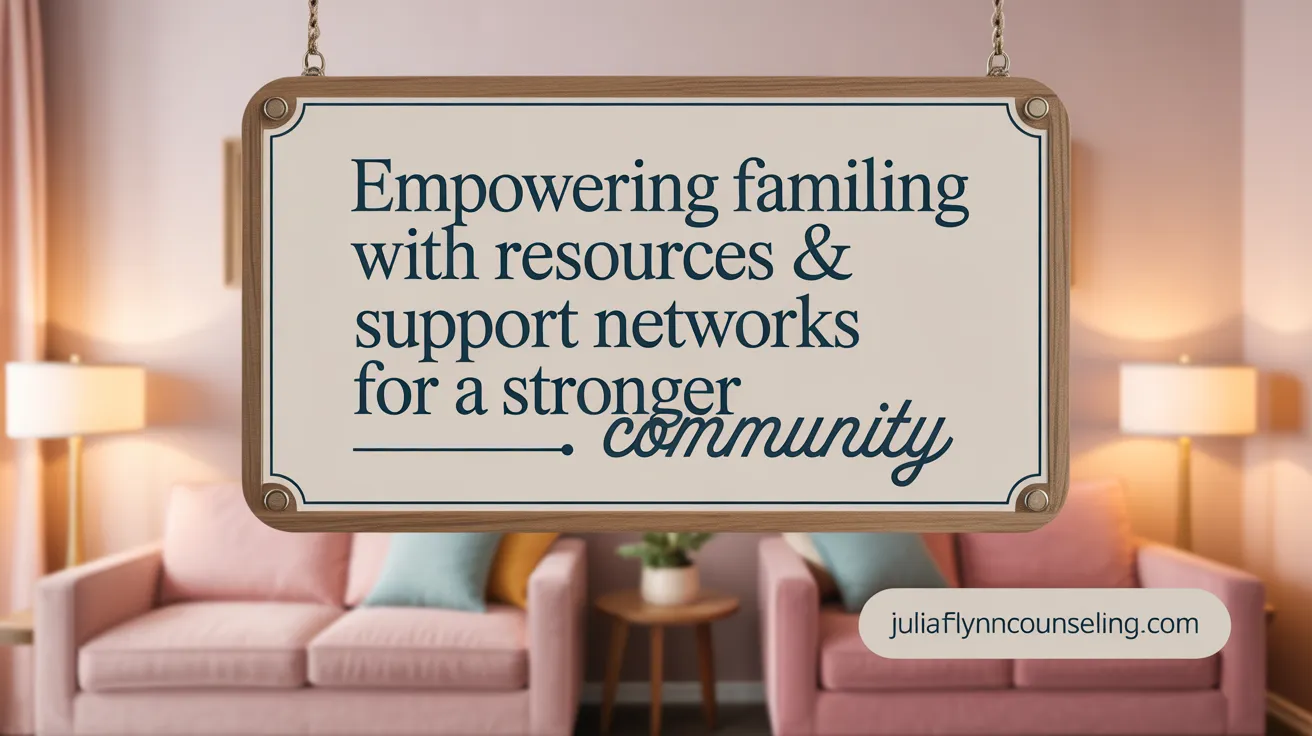
What supportive services and educational resources are available for families of children with Down syndrome?
Families of children with Down syndrome have access to a comprehensive array of support services and educational resources designed to promote development, health, and well-being. Early intervention services are fundamental, offering therapies such as speech, physical, and occupational therapy to help infants and toddlers reach developmental milestones effectively.
For school-aged children, special education programs are available through public schools, providing tailored Individualized Education Plans (IEPs) that address each child's specific learning needs. These services ensure that children receive appropriate academic support and accommodations, fostering their potential and social inclusion.
National organizations like the National Down Syndrome Society (NDSS) and the National Down Syndrome Congress (NDSC) play significant roles in offering support through local chapters, regional conferences, and national campaigns. They offer a range of resources, including support groups, parent mentorship programs, informational brochures, and advocacy training, helping families navigate the complexities of managing Down syndrome.
Support networks often include family counseling, which assists parents in coping with emotional and practical challenges. Peer support groups enable families to connect, share experiences, and learn from others facing similar situations.
Communities also organize recreational activities and social clubs that promote community integration and participation. Many regions provide additional resources such as helplines, lending libraries of educational and medical materials, and partnerships with healthcare providers, all aimed at empowering families.
Navigating health concerns and medical challenges is facilitated by access to multidisciplinary care teams and informational resources. These support and educational opportunities collectively foster a nurturing environment where children with Down syndrome can thrive, and families can develop resilience and confidence in their caregiving roles.
Care Coordination and Navigating Healthcare and Social Services
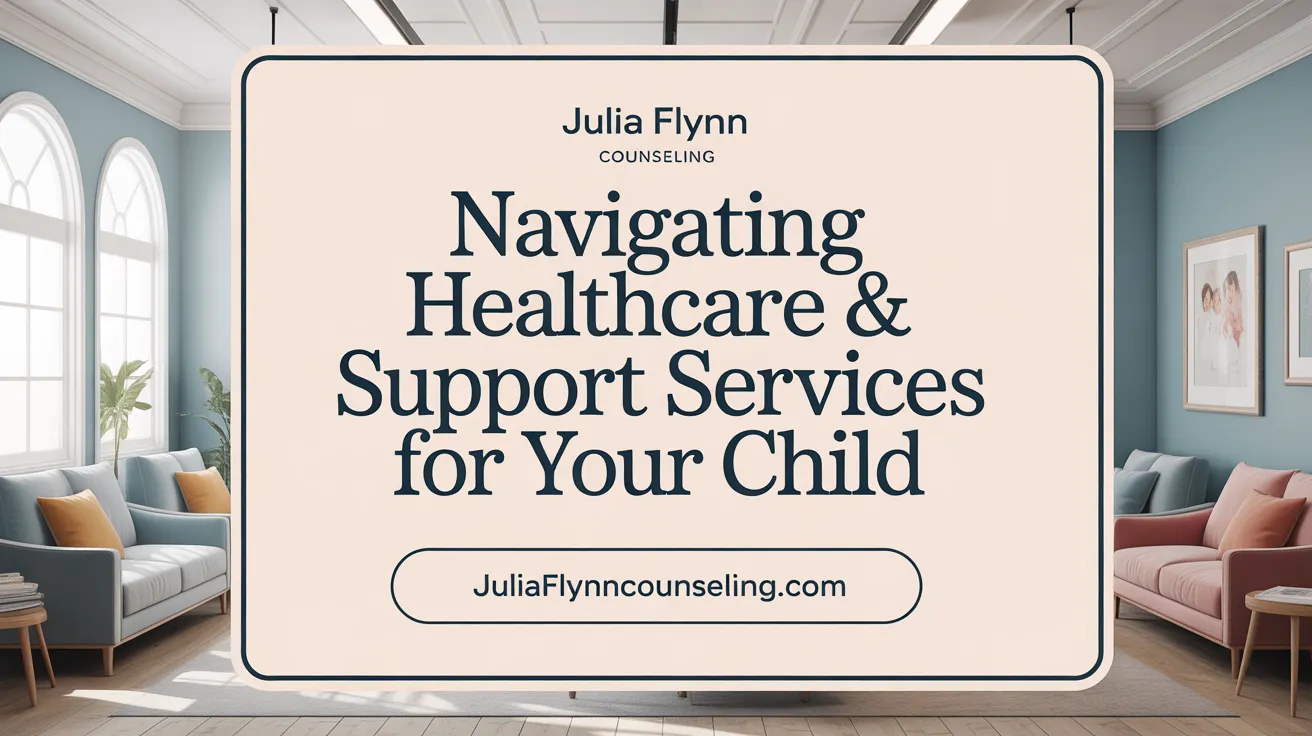 Families of children with Down syndrome can manage their child's health and social needs more effectively by working with a team of healthcare professionals specialized in various fields. This multidisciplinary group often includes pediatricians, cardiologists, audiologists, ophthalmologists, therapists (speech, occupational, physical), and social workers. Having a designated care coordinator or case manager can help organize appointments, track medical tests, and ensure timely interventions.
Families of children with Down syndrome can manage their child's health and social needs more effectively by working with a team of healthcare professionals specialized in various fields. This multidisciplinary group often includes pediatricians, cardiologists, audiologists, ophthalmologists, therapists (speech, occupational, physical), and social workers. Having a designated care coordinator or case manager can help organize appointments, track medical tests, and ensure timely interventions.
Utilizing technology, such as mobile health (mHealth) apps, can greatly aid families. These apps can store personal health records, remind caregivers of upcoming screenings and vaccinations, and give stage-specific guidance aligned with the child's development. Access to up-to-date medical information and personalized care plans makes navigating complex healthcare systems more manageable.
Effective communication between families and providers builds trust and ensures that health issues are promptly addressed. Family-centered care models emphasize treating the child as a whole person and supporting family involvement. This approach helps in understanding medical conditions like heart defects, thyroid problems, and sensory issues, which are common in children with Down syndrome. Regular health checks and early intervention services contribute to better health outcomes.
Accessing social services and community resources is also essential. Families can connect with local support groups, early intervention programs, and educational services to support their child's development. Practicing good advocacy and understanding eligibility criteria for services such as Medicaid, SSI, or developmental programs further enhances care.
Transitioning from childhood to adulthood involves planning for continued medical care, employment, and independent living opportunities. Coordinated efforts across pediatric and adult healthcare providers help ensure that individuals with Down syndrome receive ongoing support tailored to their evolving needs.
In summary, effective care coordination combines teamwork, technology use, strong communication, and resource access. This comprehensive approach helps families provide consistent, personalized support that promotes health, development, and social integration for children with Down syndrome.
Healthcare Coverage, Access Challenges, and Pathways for Improvement
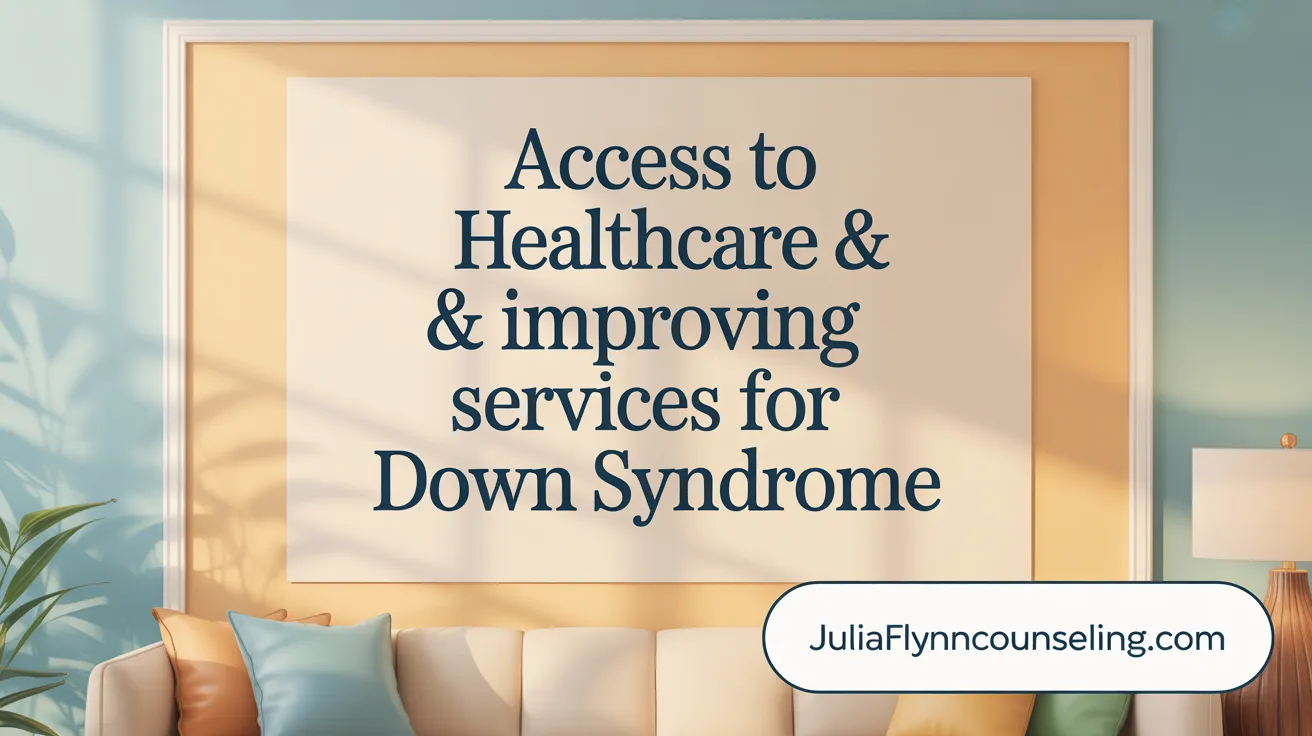 Understanding how families can access healthcare coverage and insurance options for children with Down syndrome is vital for ensuring comprehensive care. In many states, children with Down syndrome automatically qualify for Medicaid under disability categories or specific programs like Pennsylvania’s PH95, regardless of family income. Additionally, they may be eligible for the Children's Health Insurance Program (CHIP) if their income falls within certain limits. Private insurance often covers therapies not included in public programs, such as applied behavior analysis for autism diagnosis.
Understanding how families can access healthcare coverage and insurance options for children with Down syndrome is vital for ensuring comprehensive care. In many states, children with Down syndrome automatically qualify for Medicaid under disability categories or specific programs like Pennsylvania’s PH95, regardless of family income. Additionally, they may be eligible for the Children's Health Insurance Program (CHIP) if their income falls within certain limits. Private insurance often covers therapies not included in public programs, such as applied behavior analysis for autism diagnosis.
Families should work closely with social workers, insurance counselors, or the special needs units within health maintenance organizations (HMOs). These professionals help navigate complex eligibility criteria and identify appropriate programs. Benefits and criteria vary across states, but multiple federal and state initiatives exist to support children with Down syndrome, providing vital access to necessary medical and developmental services.
However, accessing high-quality healthcare remains a challenge. Many individuals with Down syndrome face barriers such as limited provider awareness, fragmentation of care, and insurance restrictions. Transitioning from pediatric to adult care often introduces gaps, with fewer specialized clinics and less coordinated services. Healthcare professionals may lack specific training related to Down syndrome, affecting the quality of patient interactions and health management.
To address these issues, multidisciplinary clinics—like Downteams—and integrated care models are essential. Such clinics bring together specialists in cardiology, endocrinology, neurology, and therapy services, providing holistic and continuous care tailored to the individual's needs, regardless of age.
Improvements also include expanding telehealth services, offering targeted provider training, and increasing awareness about the unique health needs of those with Down syndrome. These strategies can help bridge disparities, facilitate better communication, and ensure that each person receives respectful, competent, and comprehensive care across their lifespan. Strengthening care coordination, leveraging technology, and fostering provider education are vital steps toward better health outcomes and quality of life for individuals with Down syndrome.
Enhancing Healthcare Access and Outcomes for Families
Healthcare access for families with children who have Down syndrome demands a comprehensive, coordinated, and compassionate approach that integrates evidence-based medical care, supportive educational and social resources, and informed navigation of insurance and healthcare systems. While significant progress has been made through established guidelines, multidisciplinary clinics, and technology-enhanced care coordination, challenges remain in ensuring consistent quality and equitable access. Continued advocacy, provider education, and expansion of tailored services are vital to empower families and optimize health outcomes. By understanding current recommendations and resources, families and healthcare professionals can collaborate effectively to support the well-being and potential of children with Down syndrome throughout their lives.
References
- Children with Down Syndrome: Health Care Information for ...
- Health Supervision for Children and Adolescents With ...
- Care Coordination Needs of Families of Children with ...
- Healthcare Guidelines
- Caring for a Child With Down Syndrome
- How to help children and young people with Down's ...
- Living with Down Syndrome | Birth Defects
- Down Syndrome and Healthcare: Your Questions, Answered
